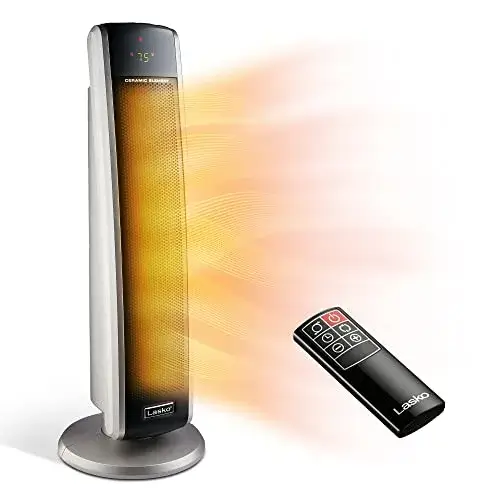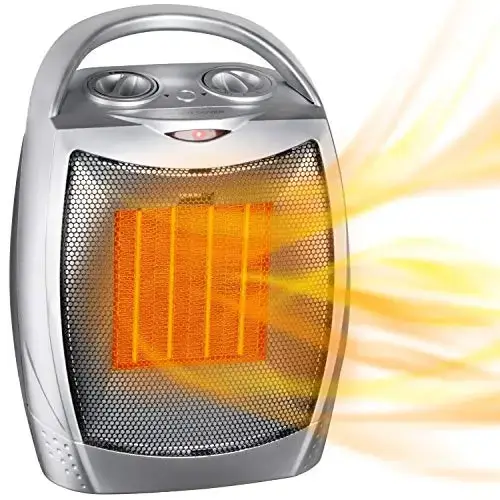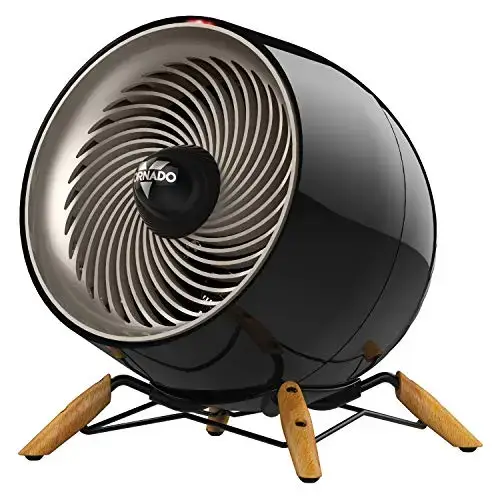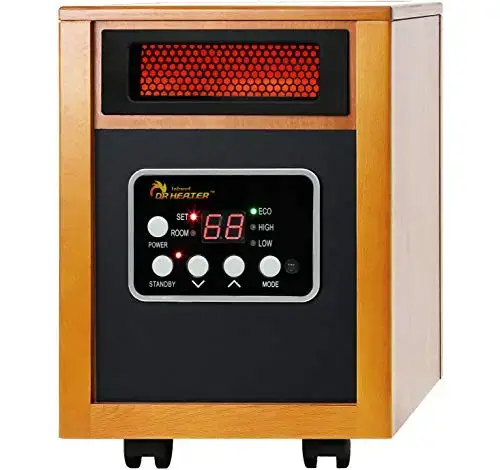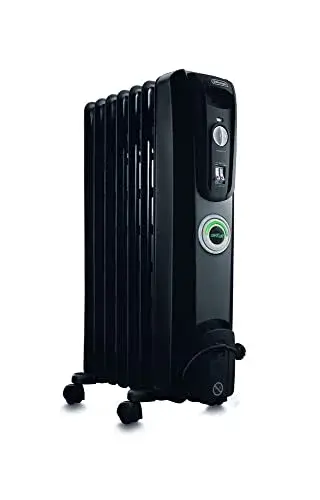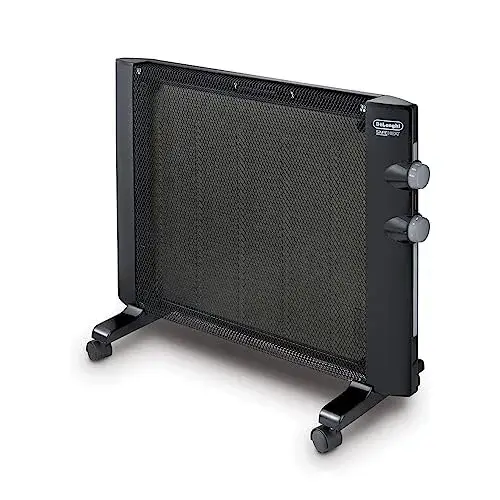Howdy, folks! Why not settle in beside the warmth of the proverbial fire?
Because, today, I’m guiding you through everything you need to know about the best RV space heaters before you make that purchase!
I’ve done a lot of traipsing around cold climates. All those icy adventures have taught me one thing. If you have a rig that allows it, get yourself a space heater for your RV.
Creature comforts MATTER on the road.
But what type of heater? How safe is it?? Won’t somebody think of the children???
Fear not! While buying a space heater for your RV can seem like a painful purchasing process, you’ve found the best buyer’s guide and seasoned nomad on the internet for the job!
Stay warm out there folks. Let’s find you the BEST space heater for the roads ahead
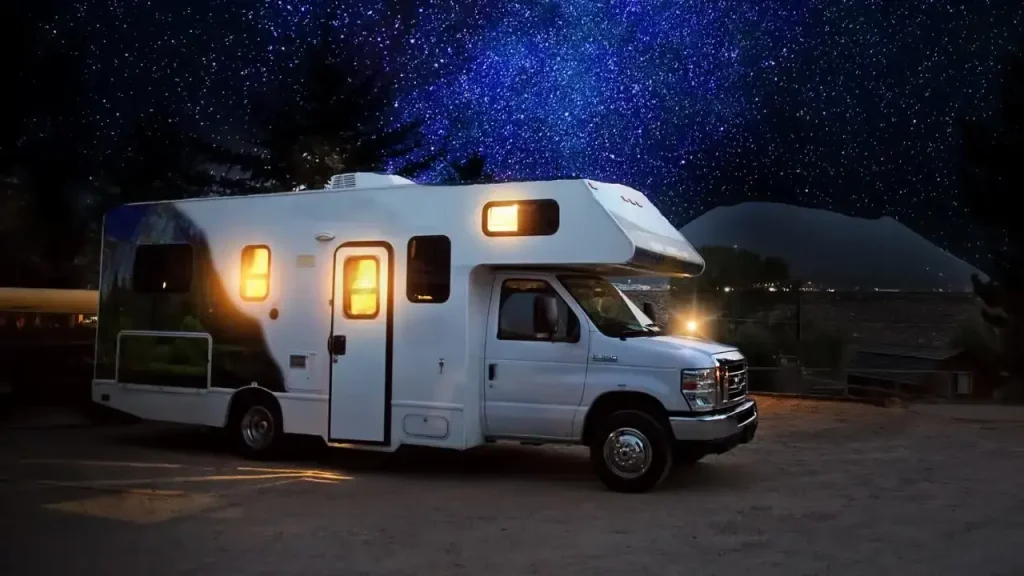
Is It Safe To Use A Portable Heater In An RV?
Look, the bottom line is YES. Snuggle up with peace of mind on those lonely winter nights knowing you are safe to enjoy that electric heater!
But it’s still not the safest. Shoving all your best RV gadgets and gear into a small space with electricity sparking and hot air blowing everywhere comes with inherent risks.
While, fortunately, it is generally safe to use an electric space heater in an RV, there are a few common-sense precautions to follow!
- Buy a heater with built-in safety features. Look for things like automatic shutoff, tip-over protection, and cool-touch exteriors. This will minimize the risk of accidents.
- Ensure the RV has proper ventilation when using the heater. This prevents the buildup of carbon monoxide and other harmful gases.
We’ll swing back into the safety guidelines later. But when buying and setting up a space heater in your RV, these are the things to initially be aware of.
But, in essence, yes, it is safe to use an electric space heater in your RV. So long as you monitor your rig and gear with the same level of diligence that you always do.
No fires, no melted shoes, no singed eyebrows. That’s a mistake you make ONCE.
Using Small Space Heaters For RVs: Pros and Cons
When it comes to heating your RV, sometimes smaller is better. Portable electric space heaters are a popular choice amongst casual and full-time RVers alike for their compact size and versatility. And for good reason!
One of a space heater’s biggest advantages is its portability. Space heaters can easily be moved around, which is perfect in the ever-shifting landscape of RV real estate. Plus, they’re small, more affordable, and generally efficient, particularly when used in a small space.
However, there are a few caveats with these little legends. Firstly, luxury RV owners might need something a little juicier to heat their roomy van-sion more effectively and evenly.
Secondly, be mindful that space heaters can overload circuits too. Manage your rig’s overall draw and be very careful running multiple space heaters! It really pays to have a top-quality RV battery and electrical system for a single or multi-heater setup.
With proper precautions and practices, small space heaters are a super effective way to up your RV’s chill factor. By making it warmer and cozier…
Mmm, bless the English language.
Types of Heating Solutions and Power Sources
When it comes to powering your RV space heater, you’ve got a few options to choose from:
- Electricity. The most common power source for RV space heaters is electricity. These heaters plug into standard electrical outlets in your RV, as well as some models operating on 12V. Electric heat is typically more energy-efficient than propane or diesel.
- Propane. Some RV space heaters are powered by propane. A propane heater is a super convenient alternative for off-grid heating! However, propane heaters, much like a propane furnace, require a steady supply of propane fuel and must be properly vented to prevent the buildup of harmful gases when in use.
- Diesel. Diesel heaters are another off-grid option for RV heating. These heaters use diesel fuel to generate heat and are often used in larger motorhomes and luxurious fifth-wheel trailer rigs.
Each power source has its pros and cons. It really comes down to the nuance of your particular setup and travel style.
Be sure to consider your specific needs and preferences. Then you’re one step closer to sealing the deal on that perfect RV heater. 🙂
The Best RV Space Heaters: 5 Types to Try
When it comes to RV heating solutions, variety is the spice of life! Let’s explore the different types of heaters available to find the perfect unit for your home-on-the-go.
1. Ceramic Heaters:
Ceramic space heaters are widely known and loved for their quick heating capabilities and energy efficiency. They use ceramic heating elements to generate heat.
They’re often compact and portable gadgets. In terms of the different classes and types of RVs, ceramic space heaters are usually more ideal for smaller setups or campervans where space is limited!
For a great ceramic heater with more oomph, I highly recommend giving the Lasko Ceramic Tower Heater With Adjustable Thermostat (1500W) a try.
Or, for a more budget-friendly model, try the GiveBest Portable Electric Space Heater With Thermostat (1500W/750W).
2. Electric Fan Heaters:
Fan space heaters utilize a built-in fan to distribute heat evenly throughout the room. While they’re on the noisier side compared to other types of heaters, they sure get the job done!
They’re versatile, effective, and generally space-savvy. As such, they’re a popular choice for RVers looking for efficient heating solutions.
I’m a massive fan of fan-based space heaters. In this category, the Vornado Glide Vortex Heater is a fantastic recommendation for top value and performance!
3. Infrared Heaters:
Infrared heaters emit infrared radiation to heat objects and people directly. (As opposed to heating the air like traditional heaters.) It’s kind of like turning your RV into a microwave!
They’re a great choice for spot heating. People often use them in larger motorhomes for consistent warmth throughout the space. They’re a great choice of unit for compact Class A motorhomes and other similarly sized-to-bigger luxury RVs.
If you feel like an infrared heater is more on your wavelength, the Dr Infrared Heater Portable Space Heater (1500-Watt / Cherry) is a fantastic unit and well worth the investment.
4. Oil-Filled Space Heaters:
Oil-filled space heaters use electricity to heat oil inside the unit, which then radiates heat into the room. Unlike fan heaters, the oil heater is known for its silent operation and consistent heat output.
For that reason, they’re a favorite choice of unit among RVers who value peace and quiet.
If you’d like to give an oil-filled radiator a go in your motorhome, De’Longhi makes some brilliant products. Try the De’Longhi 1500-Watt Oil-Filled Radiator Heater and see what I mean!
5. Panel Space Heaters:
Panel space heaters are sleek and slim, designed to be mounted on walls or ceilings for discreet heating. They’re a great choice if you’re looking for a heating solution to stay off the floor and out of the way.
Panel heaters are perfect for RVers looking to maximize their interior space without minimizing on the creature comforts. Their high-heat-output-to-low-real-estate ratio makes them an excellent choice for long-term RVers, particularly ones living in their rigs during winter.
For a panel heater, De’Longhi does it again! Try the De’Longhi Mica Panel Space Heater (1500-Watt) and see what the fuss is all about.
Using RV Space Heaters When Boondocking
Heating on the road or at campground hookups is one thing. But it’s another thing entirely during sneaky park-ups and backwoods adventures!
When you’re boondocking in an RV, don’t rely on electricity too much. If you’re set up with a deep cycle battery and solar panel combo (or something equally robust), that will be more reliable for a heater. Otherwise, expect to rely on alternative power sources like propane or diesel for your space heater.
Stock enough fuel to last your trip. And prioritize safety by properly venting your fuel-based heater to prevent the buildup of harmful gases.
But most of all, monitor those fuel levels when out boondocking in frigid landscapes. If not, you’ll find yourself snuggling a hot water bottle instead.
Using Electric Heaters In RV Parks and Campgrounds
Conversely, in an RV park, you’ll likely have access to electricity to power your space heater.
If campground hookups are your travel preference, use an electric heater. Take advantage of the convenience in campgrounds and RV parks! Electric units are typically more energy-efficient and cost-effective.
Also, be mindful of campground rules regarding electrical usage, particularly if staying in cheaper RV parks long-term. Always use your heater responsibly to avoid overloading the system.
Things To Note When Using A Portable Space Heater In An RV
While a portable electric heater can be a lifesaver in cold weather, there is no lack of things to consider when purchasing one. And then no lack of things to consider when using one either!
Firstly, never EVER run a space heater underneath your RV. This can pose a serious fire hazard and should be avoided at all costs.
Additionally, imagine your portable heater uses the buddy system and you’re its buddy! ONLY use your space heater when you’re present in the RV. Leaving it unattended can increase the risk of accidents. Always avoid this.
Features You Want In Your RV’s Space Heater
As for those things to consider when buying an RV space heater?
When shopping for the perfect heater, keep an eye out for these essential features:
- Safety Shut-off. Look for electric heaters with automatic shut-off features to prevent overheating and accidents.
- Adjustable Thermostat. Opt for electric heaters with adjustable thermostat settings. This provides customizable comfort and further prevents overheating.
- Timer Function. Built-in timer functions are great too to save energy and regulate heating times.
- Portability. Depending on your RV’s size and setup, you’ll want to consider the heater’s sizer and weight for easy integration into the RV life. The more you understand the relationship between RV heat and power load, the safer you’ll be.
- Quiet Operation. Prioritize electric heaters with quiet operation for sweet sleeps and sweeter dreams.
- Energy Efficiency. Lastly, select electric heaters with energy-efficient settings (or an overall efficient energy rating). This minimizes fuel consumption and saves money on heating costs.
How to Use a Portable Heater in an RV Safely
Safety matters, folks! It matters broadly in boring life. So it definitely matters in the thrilling rough and tumble adventures of RVlife!
Safety is paramount when it comes to using space heaters in your RV. There’s always the potential for fire hazards and carbon monoxide poisoning in an RV. Thus it’s crucial to take responsibility not only for your safety but also for those around you.
Read those manufacturer’s instructions and prioritize models with extra safety features. And for more safety tips when using your space heater in an RV, keep reading!
Safety Guidelines for Using Heaters in RVs
One hot serving of RV heating safety tips coming right up!
Ensure safety while using space heaters in your RV with these guidelines:
- Keep Flammable Materials Clear. Maintain a clear radius around the heater, free from curtains, bedding, other flammable items, and farrrr from your RV’s winter skirting (unless you like the ‘ring of fire’ effect). Furthermore, never ever cover your heater. Keep your clothes in their designated clutter piles on the bed!
- Always Be Present. If you’re heater is running, you’re always running alongside it (hurhurhur). Seriously though, never leave a heater unattended when in operation.
- Use the Thermostat Correctly. Set the thermostat to a comfortable temperature. This will avoid overheating the space and keep your resource consumption lower too.
- Do Your Research. Before purchasing a space heater, thoroughly research the product’s safety features. Read user reviews and ensure it meets your standards.
- Ventilation. And one last time (cause it matters!), ensure proper ventilation in your RV when heating. At the very least, crack a window or use exhaust fans when using propane or diesel heaters. This will prevent the buildup of carbon monoxide and other harmful gases.
A Final Note on the Best Space Heaters for RVs
Alrighty! Feeling nice and toasty? Illuminated by the warming light of my knowledge?
That should be all you need to buy yourself a bang-on space heater to supplement your RV furnace!
Overall, choosing the best space heater to keep your RV warm really comes down to:
- What your preferences are as an RV traveler.
- What your rig can actually fit and run.
Start there, scope out your options, and the rest of the path will become clear. But again, stay warm out there, folks!
RV life is about loving life. Not suffering in a freezing cold tin can miles from home. It’s important to know how to winterize an RV for colder travels and a bang-on heater is a key place to start.
Leave that to the budget vanlifers. 😉

